Minister for Health Kwaku Agyeman Manu has told Parliament Government is in the process of replacing broken down Magnetic Resonance Imaging (MRI) machines at the Tamale, Cape Coast and Ho Teaching Hospitals which are broken down and not functioning.
According to him this is an advice given by engineers and medical doctors at the above teaching hospitals that have experienced the MRIs broken down and after repair they broke down again. And looking at the hung amount pushed into their repairs yet they failed to function it was better to replace them, adding that some of the MRIs did not even function after their installation.
He told the House on Thursday, March 17, 2022 that there are seven (7), Magnetic Resonance Imaging in the country; there are three in quasi government hospitals but when it comes to those actually working there are only four.
That of University of Ghana Medical Centre, Korle-Bu Teaching Hospital, but Okonfo Anokye Teaching Hospital has been down for the past one week awaiting replacement which the hospital has ordered through a local agent.
Greater Accra Regional Hospital (Ridge) is also working, that of Tamale Teaching Hospital has been down since 2016 and requires major repairs.
“We got experience from the one in Kumasi that broke down last two years. We battled to find some money to repair it and its down again so the doctors and biomedical engineers are advising that this machines should be replaced instead of the continue repairs that cost a lot of money. There is one in Ho Teaching Hospital which has been down since 2015 with the same story of repairs. There is another one in Cape Coast Teaching Hospital. That one unfortunately never worked after installation in 2014. I have been there personally to see the machine myself sometime back in 2018 when I started touring the regions; the building has started developing cracks; we are thinking of replacing the one in Ho Teaching Hospital.”
Again, he told the House they are planning to increase the number of MIRs, stating that some of the new hospitals under development are going to be equipped with MRI scanners; one in the Ashanti Region, Tema Regional Hospital which would see a very hung refurbishment; Effia Nkwanta Regional Hospital that is also under going redevelopment and the new regional hospital near Agona Nkwanta in the Western Region.
“These six new regional hospitals to be constructed under the agenda 111 would also include MRI scanner machines and as part of retooling hospitals some of the regional hospital would be considered for the MRI as well as replacement of the three obsolete at Tamale Teaching Hospital, Cape Coast and Ho Teaching Hospitals”
When we talk about quasi government hospitals, it is owned by government organisations like the Bank of Ghana, Ghana Commercial Bank, and Cocoa Board. Despite being government, they are not under the preview of the Ministry of health; it is rather under the supervision of the boards of these cooperate institutions. “That is why we call them quasi government hospitals. We do collaborate with them for health statistics and support; we do that any time they are in need.
This came to light when the Member of Parliament for Ketu North Dr. James Klutse Avedzi wanted to know from the sector Minister how many Magnetic Resonance Imaging (MRI) machines are functional in government hospitals throughout the country.
Kwaku Sakyi-Danso/Ghanamps.com
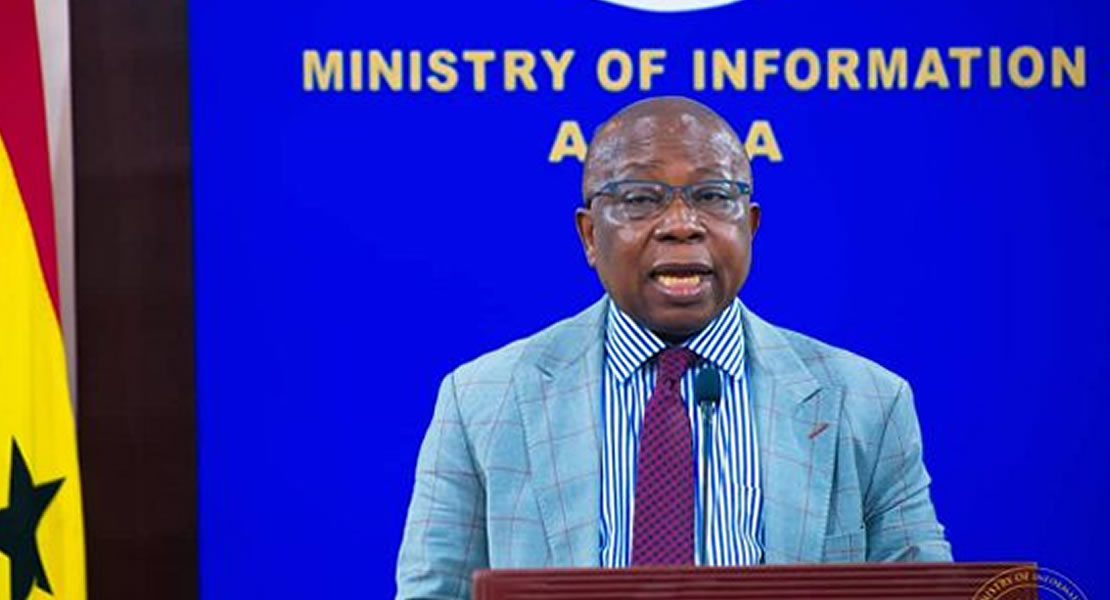
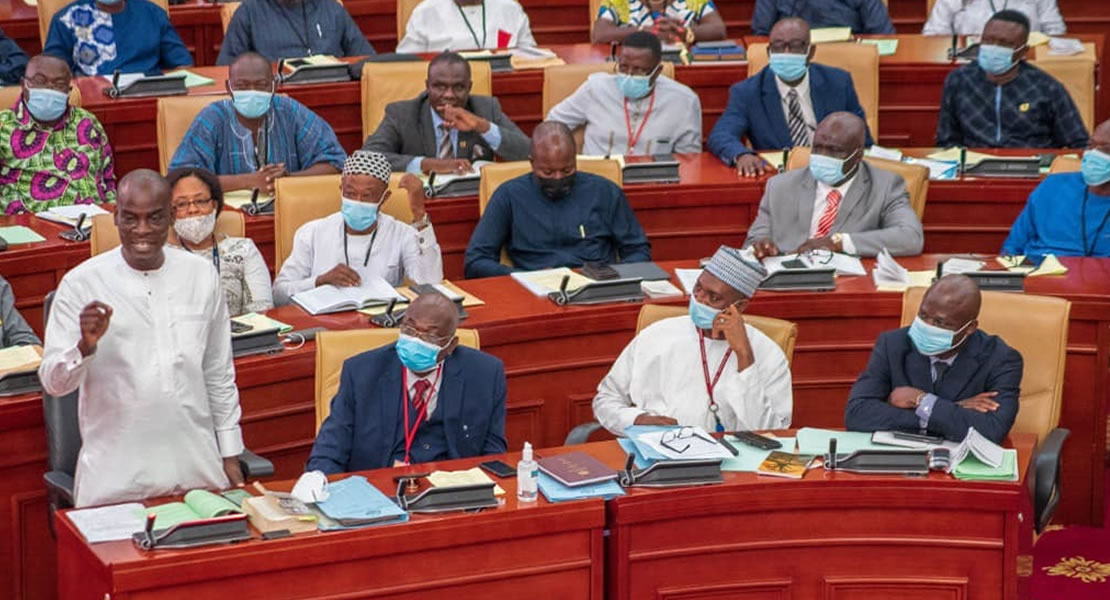
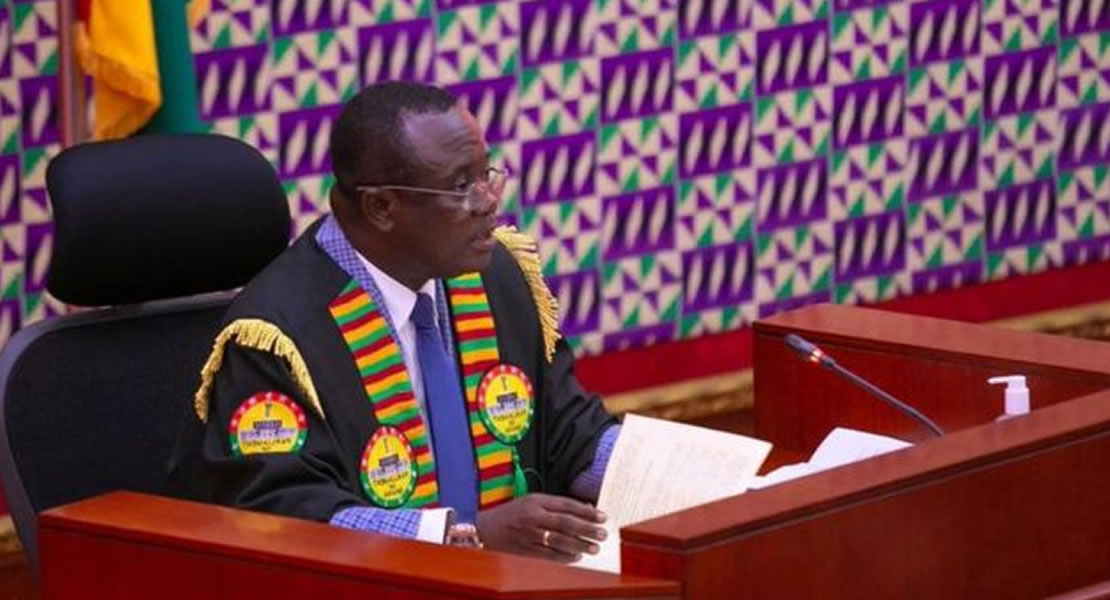 The Minority Leader and NDC MP for Tamale South, Haruna Iddrisu, told the House that the sitting lacked the required numbers for a decision or voting to be taken based on interpretation of articles 102 and 104 by the Supreme Court which gave deputy Speakers voting rights.
The Minority Leader and NDC MP for Tamale South, Haruna Iddrisu, told the House that the sitting lacked the required numbers for a decision or voting to be taken based on interpretation of articles 102 and 104 by the Supreme Court which gave deputy Speakers voting rights.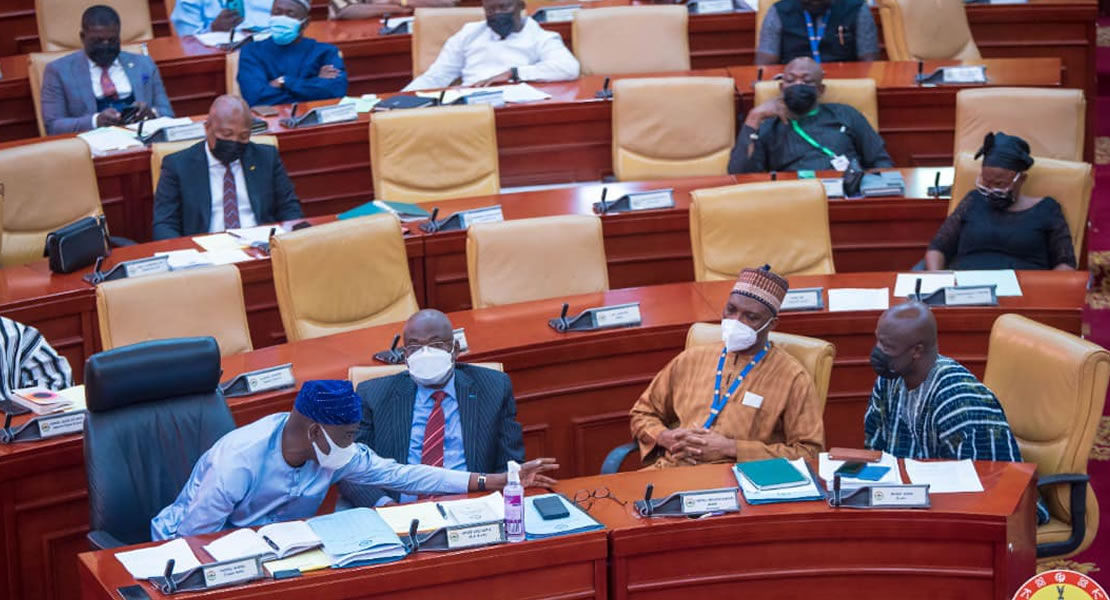 He added “therefore, you may not proceed with the question. This is a not a voting quorum. We don’t have a voting quorum and therefore, Mr. Speaker, Article 110 was to serve our purpose that we were masters of our procedures that have been called to question. We are no longer masters of it, no decision of the House without more than one half of this House”.
He added “therefore, you may not proceed with the question. This is a not a voting quorum. We don’t have a voting quorum and therefore, Mr. Speaker, Article 110 was to serve our purpose that we were masters of our procedures that have been called to question. We are no longer masters of it, no decision of the House without more than one half of this House”.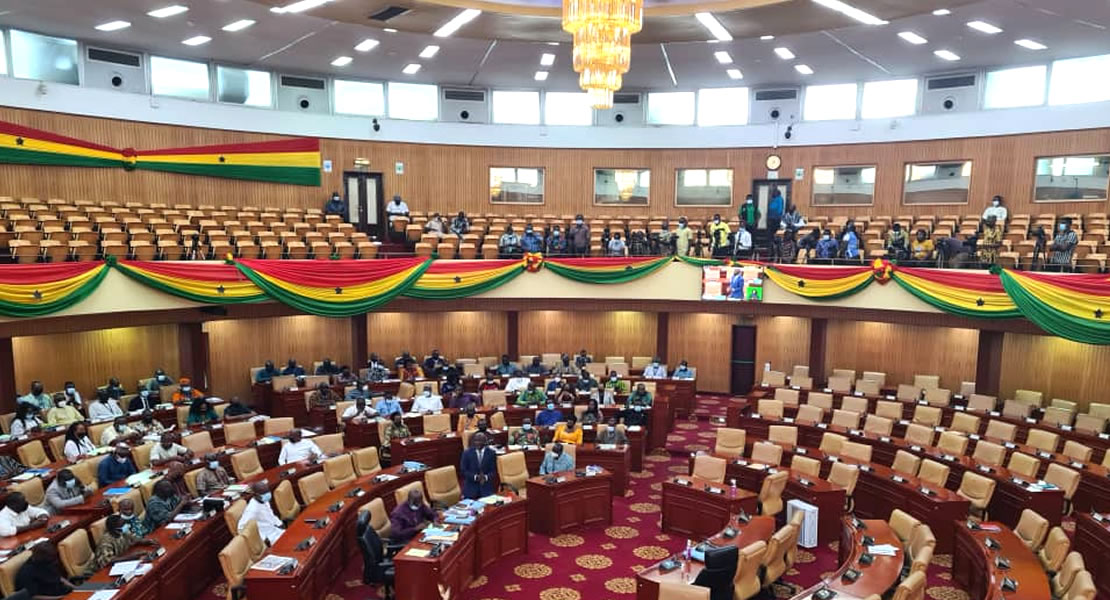 In the process, voting on motions such as that of the Supplementary Appropriation Bill, 2021 and the Criminal and Other Offences (Procedural) (Amendment) Bill, 2021, were all put on hold.
In the process, voting on motions such as that of the Supplementary Appropriation Bill, 2021 and the Criminal and Other Offences (Procedural) (Amendment) Bill, 2021, were all put on hold.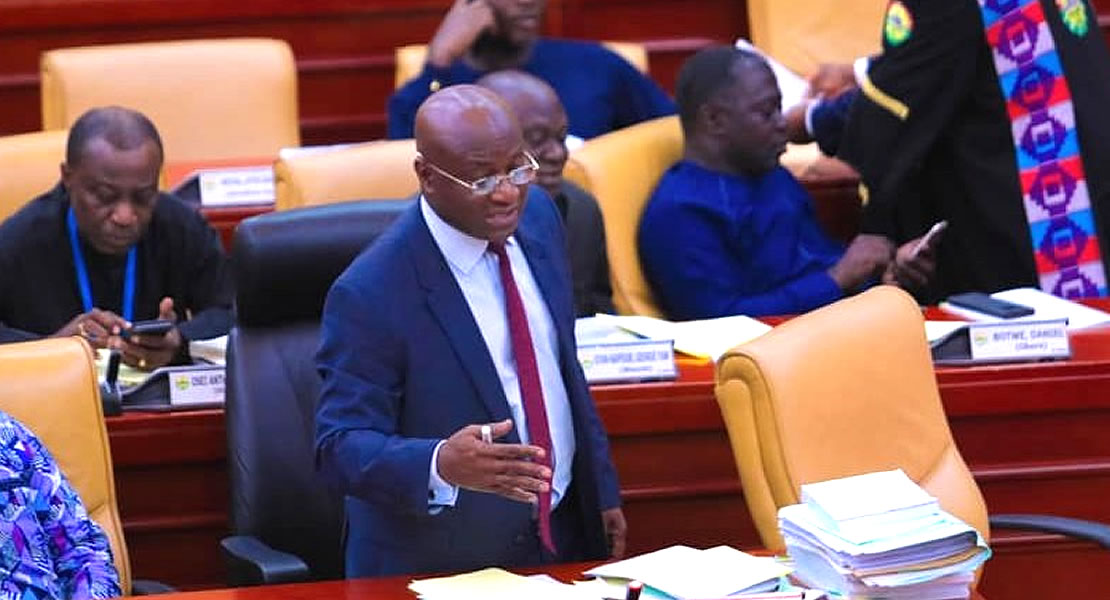 His position was heavily supported by the NDC MP for South Dayi, Rockson-Nelson Etse Kwami Dafeamekpor.
His position was heavily supported by the NDC MP for South Dayi, Rockson-Nelson Etse Kwami Dafeamekpor.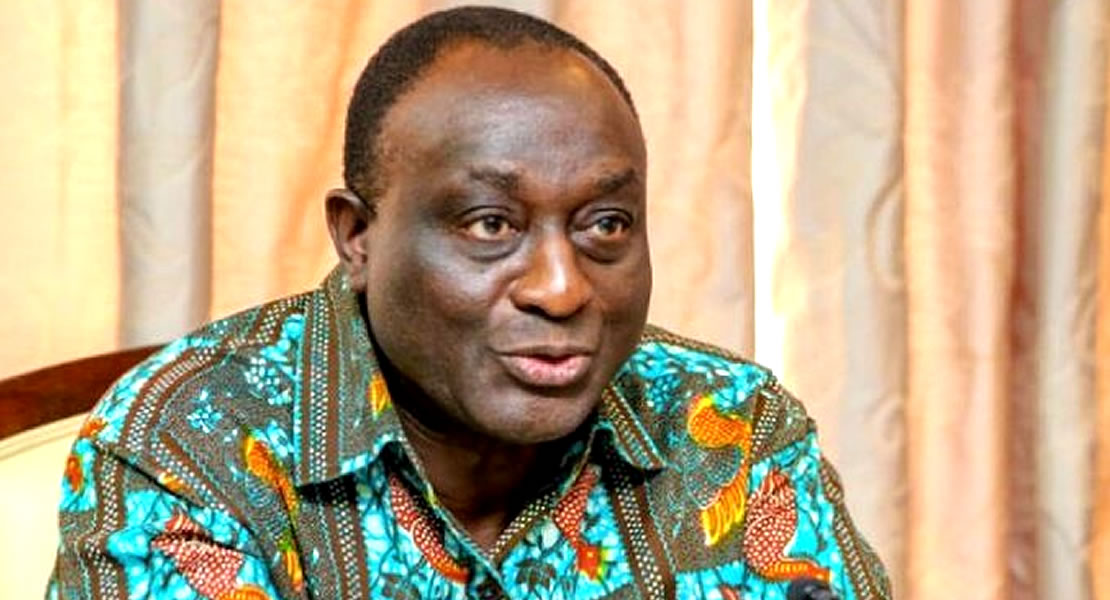
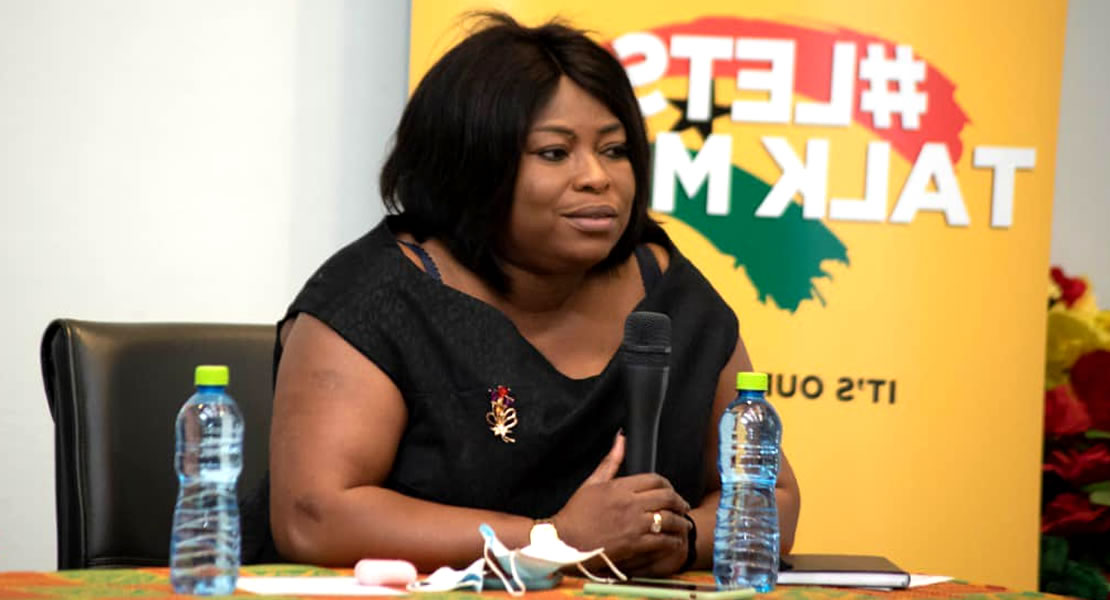
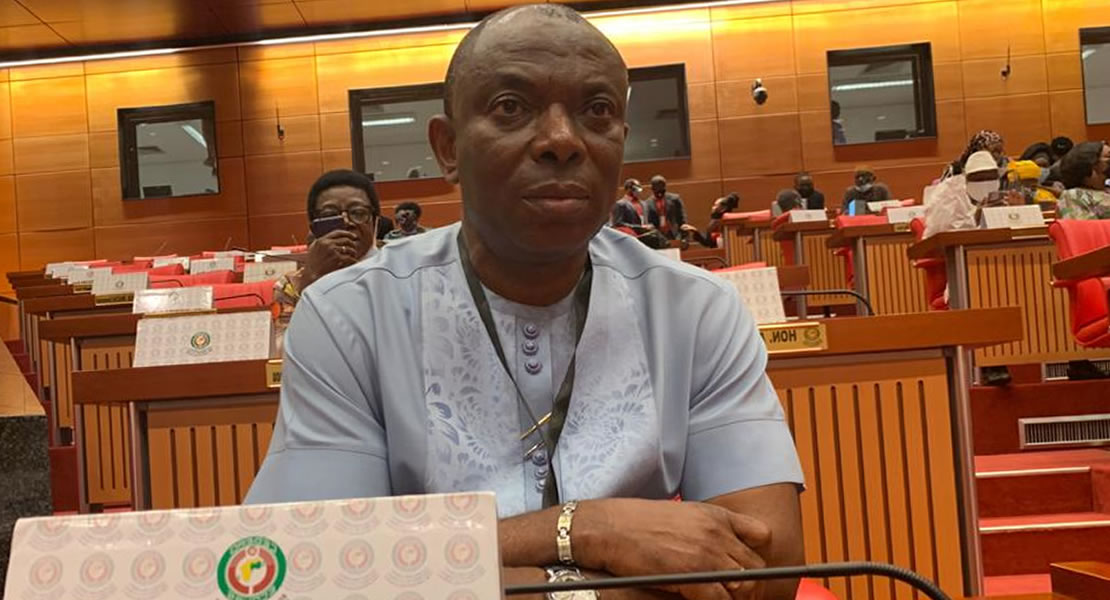
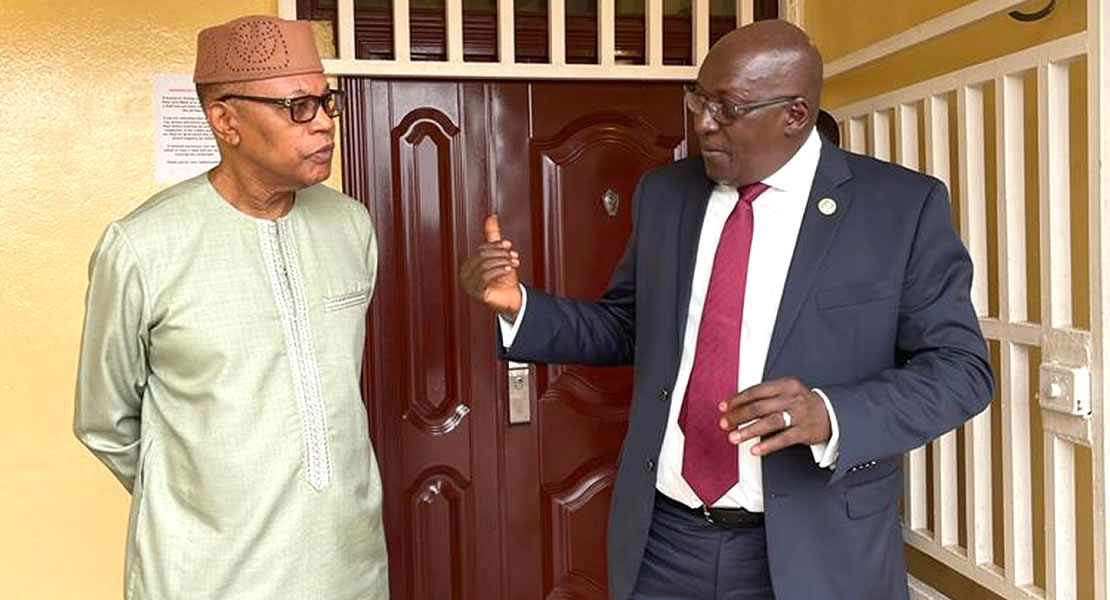
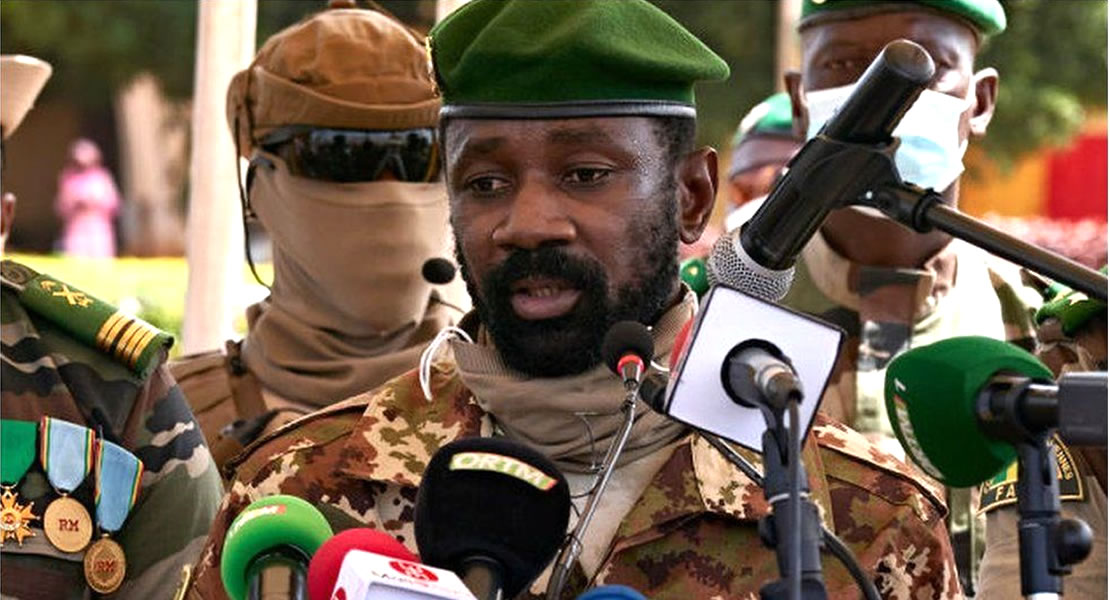 As a result, the democratic processes appear weakened, thereby impacting negatively on the image of ECOWAS.
As a result, the democratic processes appear weakened, thereby impacting negatively on the image of ECOWAS.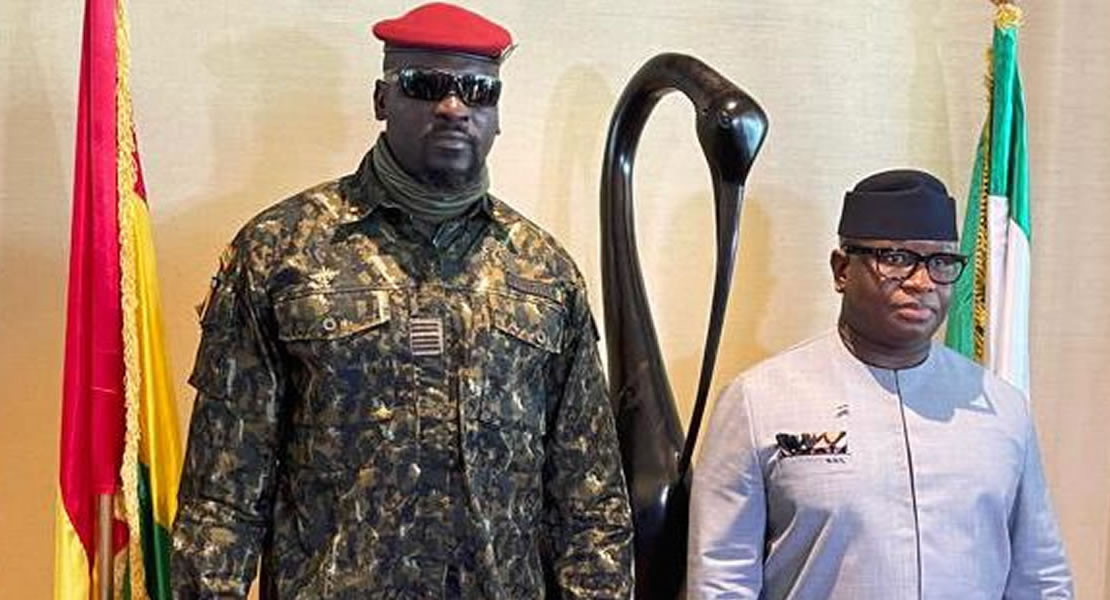 In Mali, he noted that they expressed the hope that the Malian Authorities will take seriously, the new position by the ECOWAS Authority of Heads of States and Government and take very decisive and timely steps, aimed at having them reversed. “We are aware that, as strategic as these sanctions are, their negative consequences on the civilian population cannot be avoided.”
In Mali, he noted that they expressed the hope that the Malian Authorities will take seriously, the new position by the ECOWAS Authority of Heads of States and Government and take very decisive and timely steps, aimed at having them reversed. “We are aware that, as strategic as these sanctions are, their negative consequences on the civilian population cannot be avoided.”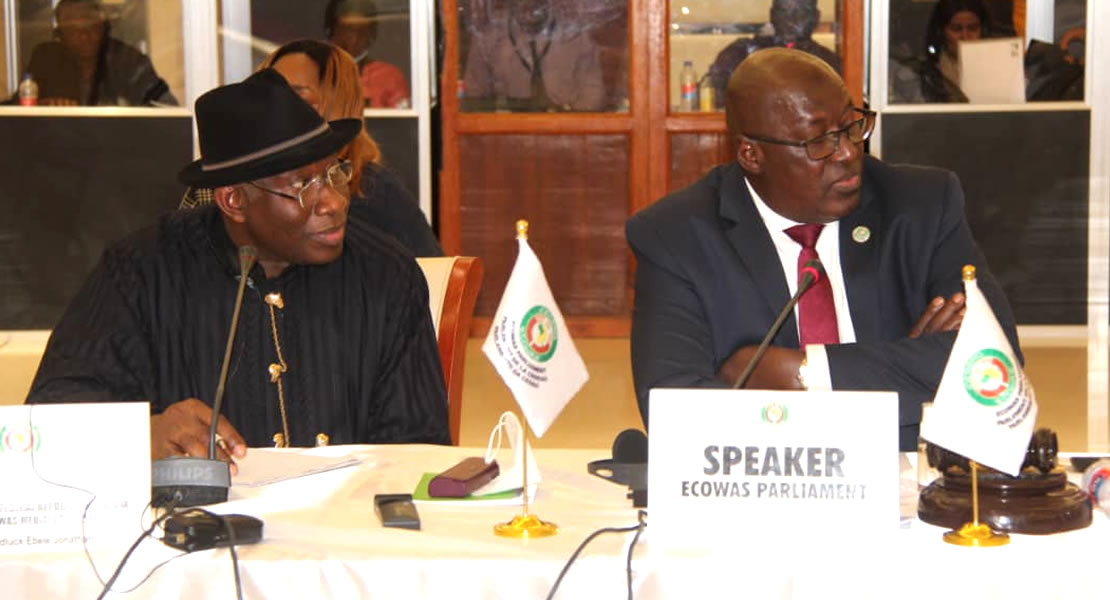
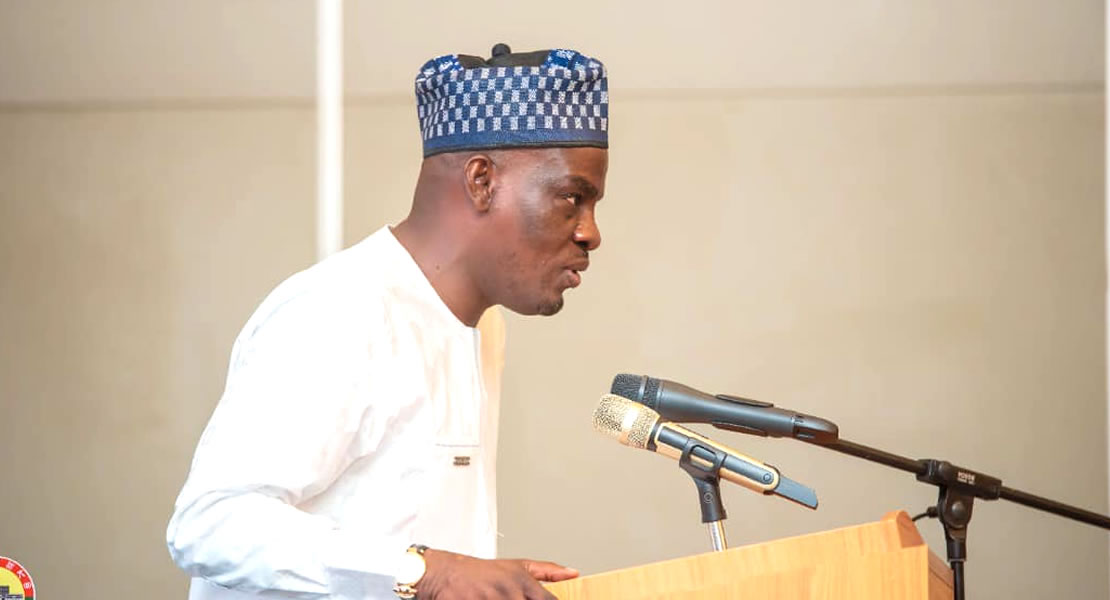
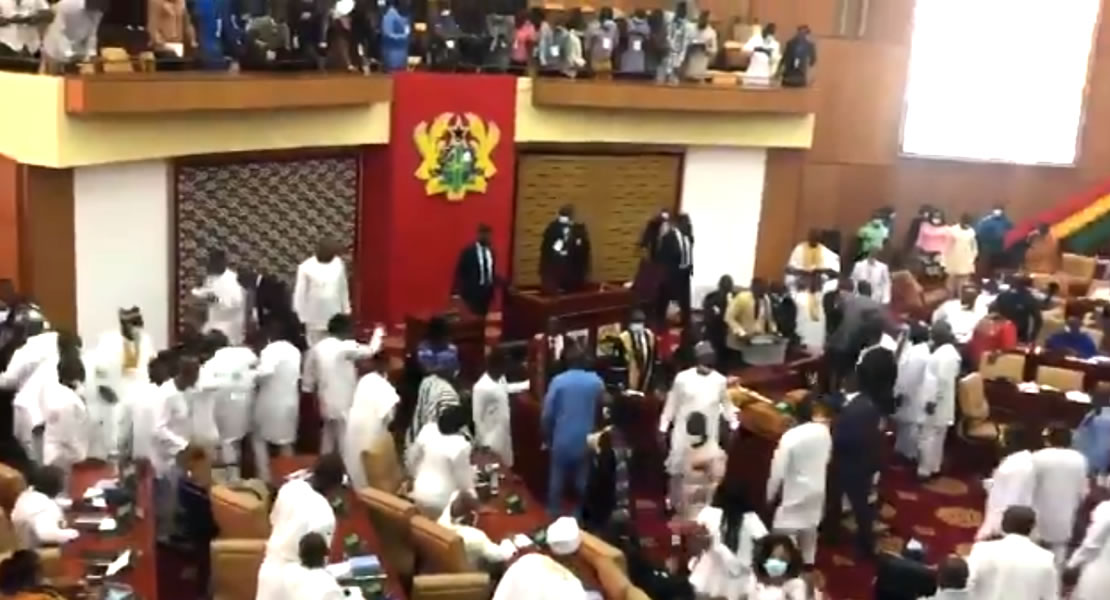 According to him, it is intriguing for us to hear while we await the full report on the reasoning of the Supreme Court from one of the justices that “the quorum in article 102 is not the same thing as the quorum in Article 104.
According to him, it is intriguing for us to hear while we await the full report on the reasoning of the Supreme Court from one of the justices that “the quorum in article 102 is not the same thing as the quorum in Article 104.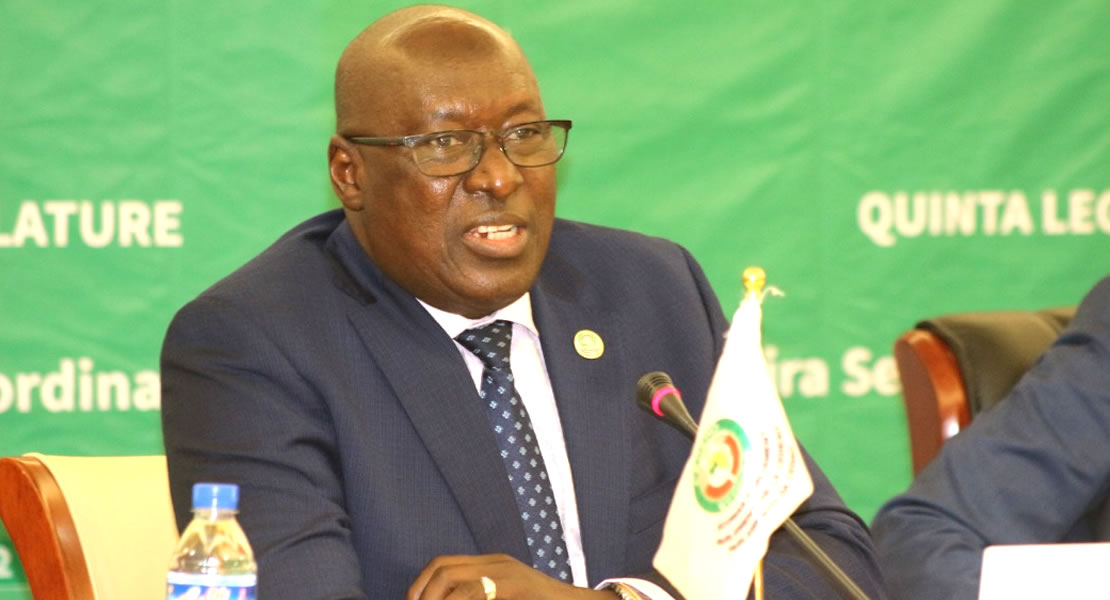
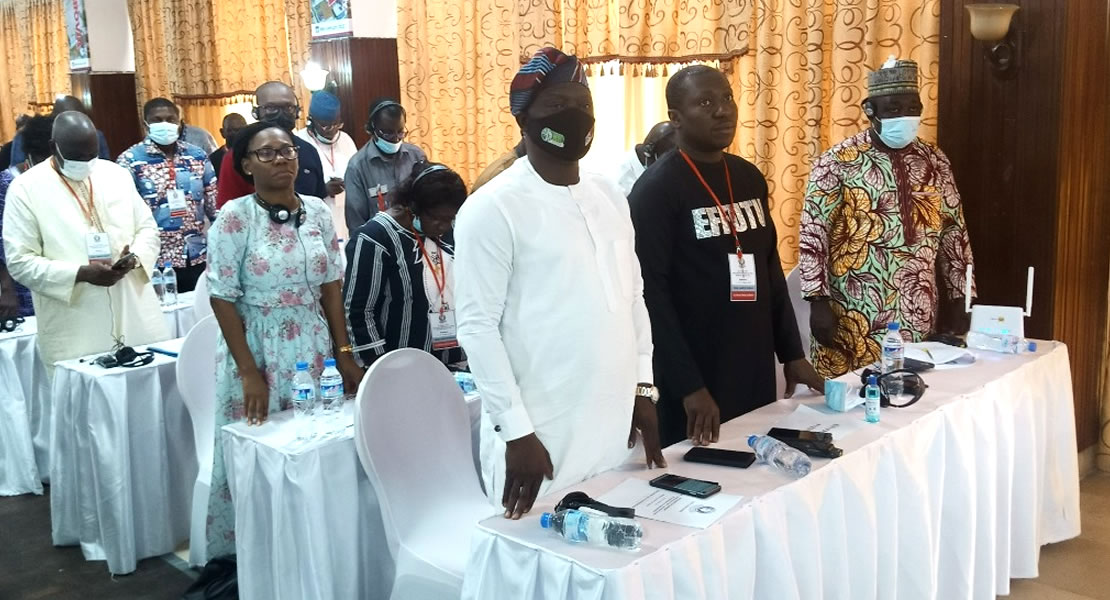 He said he is of the conviction that they do not abandoned their former colleagues because they have coup in their country and their national assembly has been dissolved, “let us listen to them”, he said.
He said he is of the conviction that they do not abandoned their former colleagues because they have coup in their country and their national assembly has been dissolved, “let us listen to them”, he said.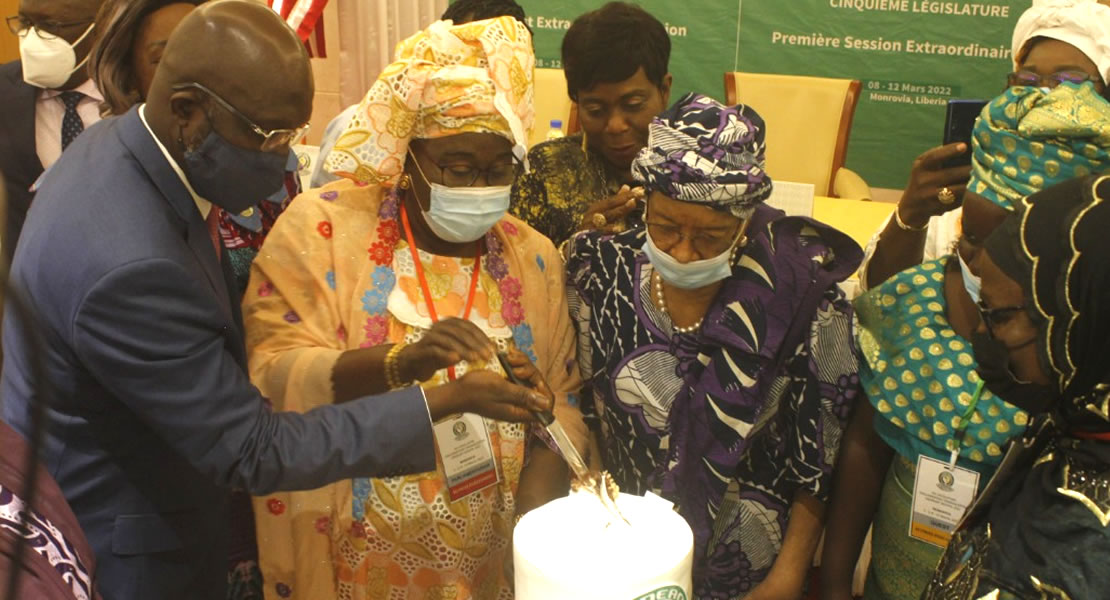
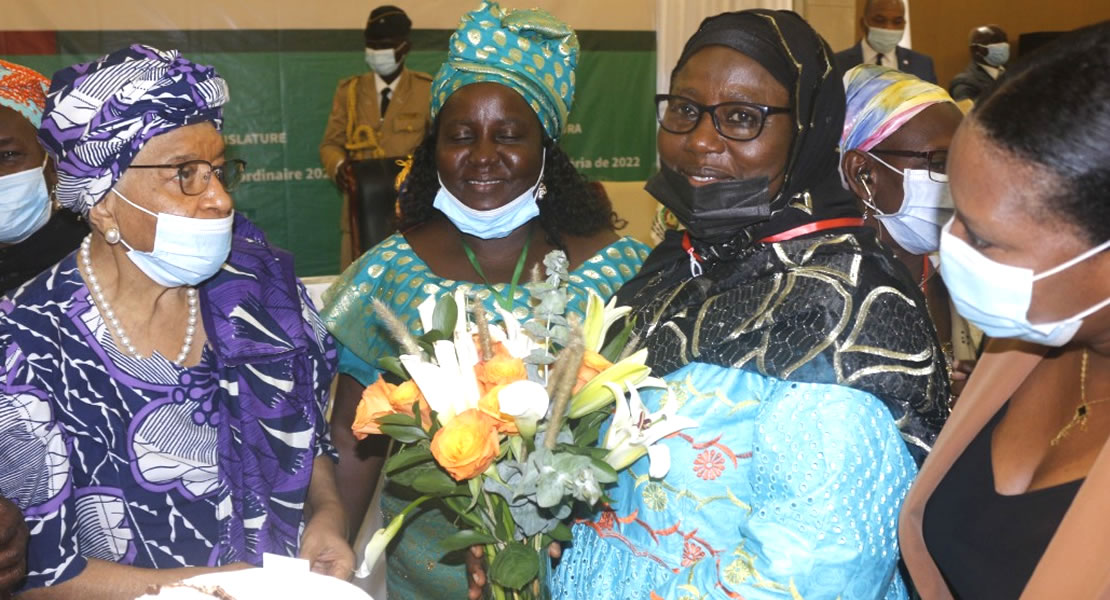 Dr. Tunis further demonstrated his commitment by towards women when he presented a cake and bouquet of flower to the Women of Liberia as a gift from the ECOWAS Parliament and in his name boldly written on it, “Happy International Women’s Day”.
Dr. Tunis further demonstrated his commitment by towards women when he presented a cake and bouquet of flower to the Women of Liberia as a gift from the ECOWAS Parliament and in his name boldly written on it, “Happy International Women’s Day”.